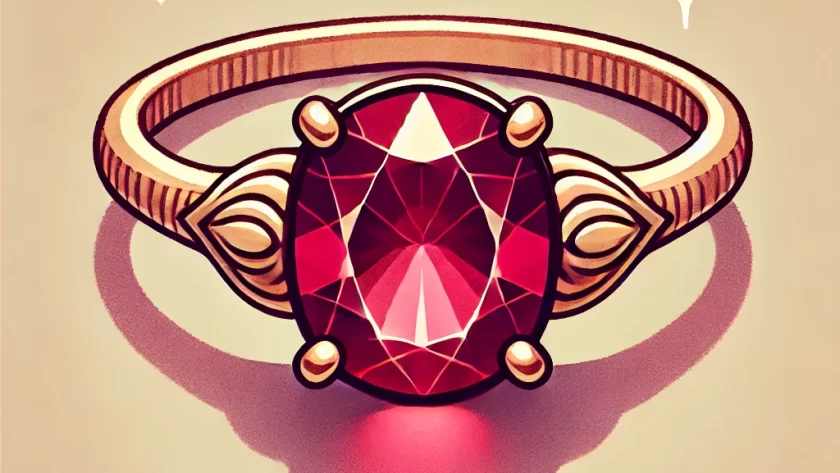ルビーの指環 [Rubī No Yubiwa]
寺尾聰 [Terao Akira]
Words : 松本隆 [Matsumoto Takashi]
Music : 寺尾聰 [Terao Akira]
The other day, while researching period dramas on YouTube, I came up with the idea of featuring this song.
Many people are familiar with Akira Kurosawa wiki, who left a significant impact with works like “Seven Samurai” and is considered an influential director internationally. Akira Terao, the artist of this song, starred in Kurosawa’s later works such as “Ran,” “Dreams,” “Madadayo,” and “After the Rain,” the latter being a film adaptation of Kurosawa’s final script in 2001.

Born as the son of the distinguished actor Jūkichi Uno, Terao initially focused on music, working as a bassist. Later, he achieved success as an actor, and his hit song “Rubī No Yubiwa” followed. Today, he is more recognized as an actor but continues his musical pursuits. Unlike many celebrities who release records composed by others after gaining fame, Terao’s work stands out because he composes his own music.
The single “Ruby No Yubiwa” was a massive hit, selling 1.6 million copies by December 1981. Recently, it has gained attention overseas with the reevaluation of “City Pop.”
The song was composed by Terao himself, and the lyrics were written by Takashi Matsumoto.
- ルビー [rubī] : ruby
- 指輪・指環(ゆびわ) [yubiwa] : ring
The title “ルビーの指環 / rubī no yubiwa” means “ruby ring.”
くもり硝子の向うは 風の街
kumori garasu no mukou wa kaze no machi
問わず語りの 心が切ないね
towazu gatari no kokoro ga setsunai ne
枯葉ひとつの 重さもない命
kareha hitotsu no omosa mo nai inochi
あなたを失ってから
anata o ushinatte kara
- くもり [kumori] : cloudy
- ガラス [garasu] : glass
- 向こう [mukou] : beyond
- 風 [kaze] : wind
- 街 [machi] : town
- 問わず語り [towazu gatari] : unprompted confession
- 心 [kokoro] : heart
- 切ない [setsunai] : sad
- 枯葉 [kareha] : withered leaf
- ひとつ [hitotsu] : one
- 重さ [omosa] : weight
- 命 [inochi] : life
- あなた [anata] : you
- 失う [ushinau] : lose
(translation) “The view beyond the frosted glass is a windy town.
An unprompted confession, my heart aches.
A life without even the weight of a single withered leaf,
since I lost you.”
Indeed, Takashi Matsumoto’s lyrics are literary.
The word “硝子 / ガラス / garasu” is derived from English and kanji were created for it, similar to other early imported words like “珈琲 / コーヒー / kōhī” for coffee. Such historical depth gives a sense of sophistication.
背中を丸めながら
senaka o marume nagara
指のリング抜きとったね
yubi no ringu nukitotta ne
俺に返すつもりならば
ore ni kaesu tsumori naraba
捨ててくれ
sutete kure
- 背中 [senaka] : back
- 丸める [marumeru] : curl
- 指 [yubi] : finger
- リング [ringu] : ring
- 抜き取る [nukitoru] : take out
- 俺 [ore] : I (male)
- 返す [kaesu] : return
- つもり [tsumori] : intention
- 捨てる [suteru] : throw away
(translation) “While curling your back,
you took off the ring from your finger.
If you’re planning to return it to me,
please throw it away.”
The pronoun “俺 / ore” is used by men.
This scene depicts the moment when a lover tries to return the ring that was bought at the time of their breakup, and it is refused, saying it’s unnecessary.”

そうね誕生石なら ルビーなの
sou ne tanjōseki nara rubī na no
そんな言葉が 頭に渦巻くよ
sonna kotoba ga atama ni uzumaku yo
あれは八月 まばゆい陽の中で
are wa hachigatsu mabayui hi no naka de
誓った愛の 幻
chikatta ai no maboroshi
- 誕生石 [tanjōseki] : birthstone
- ルビー [rubī] : ruby
- 言葉 [kotoba] : words
- 頭 [atama] : head
- 渦巻く [uzumaku] : swirl
- 八月 [hachigatsu] : August
- まばゆい [mabayui] : dazzling
- 日・陽 [hi] : sun
- 中 [naka] : in
- 誓う [chikau] : swear
- 愛 [ai] : love
- 幻 [maboroshi] : illusion
(translation) “Yes, My birthstone is ruby.“
Those words swirl in my mind.
It was August, in the dazzling sun,
the illusion of the love we swore.”
“Yes, My birthstone is ruby.”
This is someone’s line in a recollection, and the context makes it clear. The speaker’s pronoun is male, but this line uses feminine sentence-ending particles “ne” and “na no,” highlighting the contrast.
Japanese demonstrative pronouns are classified into three types: “こ, そ, あ / ko, so, a,” with many instances of “あれ / are” (=that) in this part. It’s worth studying these if you’re eager.
“そうね / sou ne” is used to mean “Yes,” but more accurately “Yes, it is,” with “そう / sou” being the equivalent of “it.” The particle “ね / ne” adds a feminine touch. Beginners should also learn the variations “そうだ / sou da” and “そうそう / sou sou,” often used to indicate agreement.
孤独が好きな俺さ
kodoku ga suki na ore sa
気にしないで行っていいよ
ki ni shinai de itte ii yo
気が変わらぬうちに早く
ki ga kawaranu uchi ni hayaku
消えてくれ
kiete kure
- 孤独 [kodoku] : solitude
- 好き [suki] : like
- 気にする [ki ni suru] : care
- 行く [iku] : go
- 気 [ki] : mood
- 変わる [kawaru] : change
- 早く [hayaku] : quickly
- 消える [kieru] : disappear
(translation) “I like solitude.
Don’t worry, you can go.
Before I change my mind, quickly,
please disappear.”
くもり硝子の向こうは 風の街
kumori garasu no mukou wa kaze no machi
さめた紅茶が 残ったテーブルで
sameta koucha ga nokotta tēburu de
襟を合わせて 日暮れの人波に
eri o awasete higure no hitonami ni
まぎれるあなたを見てた
magireru anata o miteta
- さめる [sameru] : cool down
- 紅茶 [koucha] : tea
- 残る [nokoru] : remain
- テーブル [tēburu] : table
- 襟 [eri] : collar
- 合わせる [awaseru] : adjust
- 日暮れ [higure] : dusk
- 人波 [hitonami] : crowd
- まぎれる [magireru] : blend in
- 見る [miru] : see
(translation) “Beyond the frosted glass is a windy town.
At the table where the tea has cooled,
adjusting your collar,
I watched you blend into the dusk crowd.”
そして二年の月日が 流れ去り
soshite ninen no tsukihi ga nagaresari
街でベージュのコートを 見かけると
machi de bēju no kōto o mikakeru to
指にルビーのリングを 探すのさ
yubi ni rubī no ringu o sagasu no sa
あなたを失ってから
anata o ushinatte kara
- 二年 [ninen] : two years
- 月日 [tsukihi] : time
- 流れる [nagareru] : flow
- ベージュ [bēju] : beige
- コート [kōto] : coat
- 見かける [mikakeru] : notice
- 探す [sagasu] : search
(translation) “And two years have passed.
When I see a beige coat in town,
I look for the ruby ring on finger,
since I lost you.”

The melody and lyrics are highly refined, which explains their long-lasting popularity.
Many songs about heart-wrenching breakups exist, and you might find similarities with contemporary songs like “Katte ni Shiyagare” or “Itoshi no Ellie.”
On an unrelated note, my middle school social studies teacher, Mr. Uno, was a cousin of Akira Terao. I remember his free-spirited nature, such as napping on a shelf during class, which might hint at some family resemblance.
YouTube Search ” Ruby No Yubiwa – Akira Terao | 1981 “
Thanks for reading! Feel free to comment if you have any feedback or questions.
Follow me on X.



